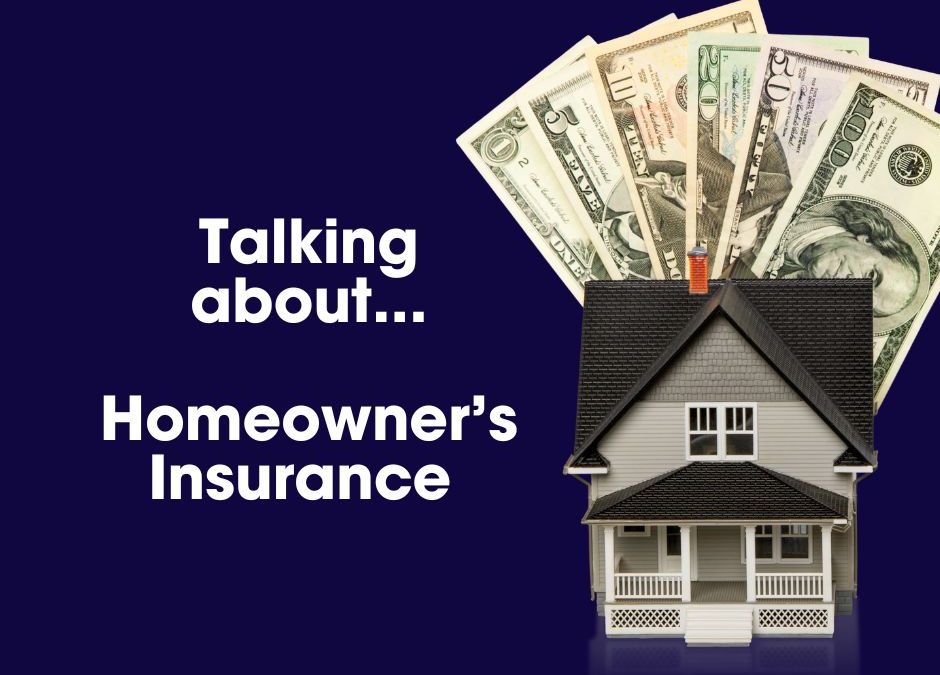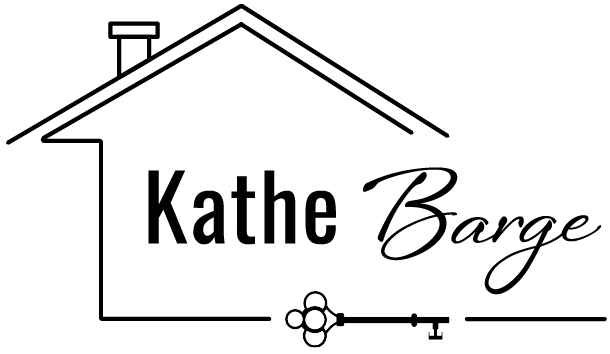
by Kathe Barge | Mar 18, 2025 | Buyers, Buying Conditions, Contracts, Interest Rates, Investment Properties, Market Trends
Should You Buy a Second Home or Rent One?
A second home is more than just a getaway—it’s an investment in your lifestyle and your future. Whether it’s a beach house, a ski chalet, or a serene retreat in the countryside, owning a second home provides a level of comfort, consistency, and long-term financial benefits that renting simply can’t match.
One of the biggest advantages of buying a second home is the ability to create a space that truly feels like yours. Unlike a rental, where you’re at the mercy of availability, price fluctuations, and ever-changing policies, ownership gives you stability. You never have to worry about booking your favorite place months in advance, finding out it’s unavailable during peak season, or dealing with rising rental costs. Instead, your second home is always waiting for you—perfectly set up with your belongings, personalized to your taste, and ready whenever you need an escape.
Financially, purchasing a second home allows you to build equity rather than spending money on temporary stays with no return. Over time, many second-home markets have shown strong appreciation, turning a lifestyle purchase into a smart long-term investment. Instead of pouring money into short-term rentals, you’re putting it toward an asset that can grow in value and potentially generate income if you choose to rent it out when you’re not using it. While rental management requires some planning, the right property in the right market can significantly offset ownership costs.
Beyond financial benefits, owning a second home opens the door to a deeper connection with a community. Instead of being a visitor, you become part of a neighborhood, forming lasting relationships and truly getting to know the area. Whether it’s a favorite café where they know your order, a group of neighbors who become lifelong friends, or simply the joy of returning to a place that feels like home, these are experiences renting can’t offer.
Of course, buying a second home is a big decision, and choosing the right location, property, and market conditions is key. That’s where working with a knowledgeable real estate professional makes all the difference. Through the Sotheby’s International Realty network, I can connect you with the very best agent in any destination, whether you’re looking for a mountain retreat in Aspen, a beachside villa in the Carolinas, or a vineyard estate in Napa. With access to unparalleled local expertise and the world’s most exclusive properties, we can find the perfect second home to fit your lifestyle and goals.
Thinking about making your second home a reality? Let’s talk—I’d love to help!

by Kathe Barge | Jan 27, 2025 | Buyers, Buying Conditions, Contracts, Helpful Tips, Insurance, Market Trends, Mortgage, Pittsburgh, Property Value, Real Estate, Security
With all the media attention on the California fires and how California is now undergoing a home insurance crisis– we are just curious, what do you foresee happening to homeowner insurance for homes in the Pittsburgh area?
The homeowners insurance market in Pennsylvania has been anything but predictable lately, and 2024 brought plenty of changes. Premiums skyrocketed—some as much as 50% (as was the case with our home)!—due to inflation, rising costs for building materials, and an increase in severe weather claims. On top of that, insurance companies tightened their rules, especially for older homes or properties in high-risk areas. Many homeowners now need inspections, updates, or even separate policies for things like flooding or wind damage just to maintain coverage.
Looking ahead to 2025, experts predict rates will continue to climb, with increases of 8-15% expected. But there are ways to ease the burden. Insurance companies are rewarding homeowners who invest in risk-reducing upgrades, like storm-resistant roofs, updated wiring, or fire-resistant landscaping. We added a whole house surge protector to our home to help mitigate the risk of future claims after we experienced a 2023 power surge that damaged many appliances. Small changes can add up, so it might be worth tackling those projects sooner rather than later.
Another way to manage costs is by raising your deductible. Many carriers are already requiring higher minimum deductibles, such as $2,500, so bumping it up even further could help lower your premiums. We made this choice in order to bring down the overall cost of our insurance, figuring we will not file smaller claims (as they will only increase future insurance rates). Bundling your home and auto policies is another smart way to save—your agent can help you explore these options.
The homeowners insurance market is complex and ever-changing, but staying proactive can make a big difference. With recent hurricanes and wildfires causing catastrophic damage in other states, it’s a sobering reminder that no home is completely immune to risk. Now’s the perfect time to review your policy, explore cost-saving options, and make sure your home—and your wallet—are ready for what’s ahead.

by Kathe Barge | Aug 6, 2024 | Buyers, Buying Conditions, Contracts, Helpful Tips, Inspections, Interest Rates, Listings, Market Trends, Mortgage
We’re first-time home buyers. Where do we begin? (Part 4 of 4 – Last Chapter)
As you approach the final stretch of your home buying journey, it’s time to focus on the crucial steps that will bring you to the finish line. After months of searching, negotiating, and securing financing, you’ll need to ensure that all remaining documents are in order for your lender. This might include providing the latest pay stubs, bank statements, or any other documentation that the lender requires to finalize your mortgage. Additionally, securing homeowners insurance is a critical step that must be completed before closing. Start shopping for insurance early to compare coverage options and rates, ensuring that your new home is well-protected from the start. It’s also time to turn your attention to connecting utilities. Contact your local utility providers—such as electricity, gas, water, internet, and waste management—to set up new accounts and arrange for service activation.
Finally, as the closing date approaches, conduct a final walkthrough of the property, usually a day or two before closing. This walkthrough is your opportunity to verify that the property is in the condition agreed upon and that any repairs negotiated in the contract have been completed. Carefully inspect each room, test appliances, and ensure that everything is functioning as expected. If any issues arise, discuss them with your real estate agent immediately. On closing day, be prepared with a driver’s license or passport. Once everything is signed and the closing costs are paid, you’ll receive the keys to your new home, marking the completion of your journey and the beginning of a new chapter in your life. Congratulations on becoming a homeowner!

by Kathe Barge | Jul 22, 2024 | Buyers, Buying Conditions, Contracts, Helpful Tips, Interest Rates, Listings, Market Trends, Mortgage, Property Updates, Property Value
We’re first time home buyers. Where do we begin? (Part 3)
If you are following along, so far you have gotten pre-approved for your mortgage, researched and chosen a buyer’s agent to be your advocate, saved money for your down payment, shopped for a home and gotten one under agreement. Now the fun continues!
Once you have a home under agreement and have deposited your hand money, you will be ready to schedule your inspections. Your buyer’s agent should provide you with guidance in finding reputable home inspectors. You will want to consider scheduling a general home inspection as well as inspections for radon, wood boring insects (termites), mold, and possibly sewer lines, septic systems and wells. You generally have 10 – 14 days to complete your inspections. At the end of that period, you will need to make a request of the seller if you would like any items addressed. To reach a successful conclusion of negotiations, keep some simple tips in mind. First, you should have considered anything on the disclosure when you were making the offer – its not a great idea to revisit disclosed items. The same can be said for items you could have easily seen. If the inspector notes that the driveway is cracked and you should have seen it while visiting the home, asking for the seller to pay for a new driveway will also not be well received. So, when deciding what, if anything, to request of the seller, eliminate disclosed items and things you noticed when visiting the home and then turn your focus to the items that concern you most. Of course, if there were multiple offers and you were the winner in a bidding war, you may not be able to ask for much if anything as there is likely another buyer on standby! Ultimately, you and your seller will need to reach a compromise on the inspection issues and that agreement will be formalized in a written addendum to your Agreement of Sale.
At the same time you are working through inspections, you will also need to make application for your financing. This must be complete (in other words, you must have all of your paperwork to your lender) within 7 days of the final Agreement of Sale. Applying for a mortgage these days can seem quite challenging – be prepared for the lender to ask for what will seem like a mountain of documents. And do NOT make any major purchase until after you close on your home – changes to your outstanding debt at this point could affect your ability to qualify for a loan at all! Once you get through inspections and mortgage application, it should be smooth sailing. We will cover the final step in the process next time!
taking-the-first-steps-part-one
taking-the-steps-part-two

by Kathe Barge | Jul 3, 2024 | Buyers, Buying Conditions, Contracts, Helpful Tips, Inspections, Interest Rates, Listings, Market Trends, Mortgage, Property Value, Real Estate
We’re first time home buyers. Where do we begin? (Part 2)
For those of who just picking up the conversation today, check out Part One to read my introduction to the home buying process. If you are following along, so far you have gotten pre-approved for your mortgage, researched and chosen a buyer’s agent to be your advocate, and hopefully saved money for your down payment. Now the fun begins!
Once you are pre-approved for a loan and have determined what price range you are comfortable shopping in, you can start your home search. Typically, this begins with an online search – your buyer’s agent should set you up to receive new properties as they become available. As interesting homes come on the market, you will want to tour them immediately. In most price ranges, we have an extreme shortage of inventory and those who snooze tend to lose. It is important to have seen enough properties upfront so that when you see the right one, you know it and are ready to make a move. When evaluating homes, it is also important to be realistic. There is no perfect home, so establish your list of criteria upfront. If a home achieves 7 out of 10 wish list items, in real estate we call that a home run. If you are going to hold out for all 10, a move is probably not in the cards for you in the short run.
Once you find a home that works for you, in this market you do need to anticipate a bidding war is a realistic possibility. Interestingly, even homes that have sat on the market for seemingly prolonged periods of time will often receive multiple offers, so do not delay in making an offer if you like a home. If there are multiple offers, do not assume you will get a second chance – work with your buyers offer to make the highest, “cleanest” offer that you can out of the gate.
Once you have a home under agreement and have deposited your hand money (anticipate 1%-5% of your purchase price depending on your price range), you will be ready to schedule your inspections. Next week I will talk more about inspections and how to get through them!
taking-the-first-steps-part-one
taking-the-first-steps-part-three

by Kathe Barge | Jun 26, 2024 | Blog, Buyers, Buying Conditions, Contracts, Helpful Tips, Interest Rates, Listings, Market Trends, Mortgage, Property Value
We’re first time home buyers – where do we begin?
Buying a home is one of the best choices you can make. Rather than paying money to your landlord so that he can be closer to owning an asset outright each month, when you make your monthly payment each month a portion actually goes to your benefit – when you sell the home someday, as long as the market is in a good place, that money is refunded to you (called equity) and you can use it to buy again. It is, in effect, a forced savings plan and over time you can amass quite a large amount of savings while you are simply doing what you would have done otherwise – paying for housing each month.
To buy a home, however, you must have two things to start: a down payment and good credit. There a host of specialty loan products for first time home buyers far too extensive to review here, but figure on saving no less than 2.5% of the purchase price for a down payment if you are able to use an FHA product or 10% if you are going to use a typical mortgage. Credit scores are also key. Again, there are many things you can do to help or hurt your credit as you prepare to buy your home. Do not open any new credit – don’t buy any new cars. Pay all bills on time. Even if you are not ready to buy yet, it’s a great idea to connect with a reputable local mortgage broker right away to make sure you are headed in the right direction. (I can help facilitate this connection for you).
When you think you are ready, start by finding a full-time buyer’s agent. A Buyer’s Agent is looking out for your best interests from the outset. Check the agent’s personal website, LinkedIn page, Google business page and professional credentials, review their references, and interview if you wish. Make sure you understand what the agent will do for you and be sure you have done your homework and are selecting the best agent for your needs. Buying a home may be your largest investment – choose the agent who represents you once you have done your thorough due diligence. Once you select an agent, you will need to sign two documents: a Consumer Notice, informing you of your rights, and a Buyer Agency Agreement, whereby you actually hire the agent to work for you.
If you have not already done so, you should work with your agent to get a mortgage pre-approval. The mortgage broker will review your assets, liabilities and credit and give you a written statement of how much you can afford to buy. This step cannot be skipped. There is no sense looking at homes you can’t afford.
With pre-approval in hand and agent on board, you are now ready to begin the home buying process…stay tuned – in two weeks I will continue to walk you through the process…it’s when the fun begins!
taking-the-first-steps-part-2
taking-the-first-steps-part-3

by Kathe Barge | May 28, 2024 | Buyers, Buying Conditions, Contracts, Helpful Tips, Listings, Sellers, Sellers-Contracts, Selling Conditions
How can I effectively negotiate the price of a home? What strategies work best?
Begin with a strong position by showing that you are a serious buyer. This involves being well-prepared with a mortgage pre-approval and a readiness to move quickly. Sellers are often more willing to negotiate if they see that the transaction is likely to proceed smoothly and without delay. Show your commitment by ensuring all your documentation is in order, and express your readiness to close the deal to instill confidence in your offer.
During negotiations, keep an eye on the market dynamics. If homes in the area are selling quickly, you may need to adjust your strategy to be more competitive. However, if homes are lingering on the market, you may have more leverage to negotiate a lower price. Use this market data to inform your strategy, adjusting your offer according to how the local market is behaving. This knowledge not only helps in making a reasonable offer but also in setting your limits during negotiation.
Lastly, don’t hesitate to ask for concessions that can effectively lower the overall cost of the transaction. For instance, you can request the seller to cover certain closing costs or repairs that need to be addressed. These concessions can be just as valuable as a lower purchase price, and sometimes they are easier for the seller to agree to. By focusing on the total value of the package you’re getting, rather than just the purchase price, you can create win-win situations that make your offer more attractive while still keeping your expenses in check.

by Kathe Barge | May 13, 2024 | Buyers, Contracts, Helpful Tips, Inspections, Listings, Market Trends, Real Estate
What legal considerations should I be aware of when buying or selling a home?
Buying a home involves many legal components. Most buyers focus on how the house looks and give very little thought to the most important pieces of the transaction. One key legal consideration in real estate transactions is the proper drafting and understanding of the purchase agreement. This contract outlines the terms of the sale, including price, closing conditions, and any contingencies such as the buyer obtaining financing or the results of a home inspection. Both buyers and sellers should thoroughly review this document with their expert agent before signing to ensure all terms are clear and protect their interests. Any ambiguity or oversight in this contract can lead to disputes or financial losses.
Ensuring the legal integrity of the property’s boundaries is also crucial. Both buyers and sellers should have an up-to-date survey conducted to confirm property lines and identify any encroachments or easements that may impact ownership rights. Understanding these details helps prevent disputes with neighbors and ensures that all parties have clear expectations about the property’s limits.
Lastly, it is important that you have a good understanding of local zoning laws and regulations. Buyers should verify that their intended use of the property aligns with local zoning ordinances, which can affect everything from home renovations to business usage. Sellers must disclose any known zoning violations that could affect the property’s value or usability. Compliance with these laws ensures that buyers can utilize their new property as planned and avoids legal complications down the road. My legal education makes me uniquely qualified to help buyers and sellers avoid these and other legal pitfalls – connect with me for more information!

by Kathe Barge | Apr 26, 2024 | Buyers, Buying Conditions, Contracts, Helpful Tips, Inspections, Interest Rates, Listings, Market Trends, Mortgage, Property Value
What are some common mistakes homebuyers make and how can I avoid them?
One of the initial mistakes homebuyers often make the mistake of not getting pre-approved for a mortgage before starting their home search. This oversight can lead to disappointment if they find a home they love but then discover they are not qualified to purchase it. To avoid this, it’s essential to secure pre-approval from a lender early in the process. This not only helps you understand exactly how much you can afford but also strengthens your position when you’re ready to make an offer, showing sellers that you are a serious and prepared buyer.
Another significant mistake is skipping the home inspection process. While this may seem like a good way to save money or make a more appealing offer in a competitive market, it can lead to costly repairs down the line. A professional home inspection can uncover hidden problems with the home’s structure, systems, and appliances that might not be obvious to an untrained eye. Always include a home inspection contingency in your purchase offer, which allows you to renegotiate or withdraw if significant issues are discovered. This not only provides peace of mind but also protects your investment.
Finally, buyers often fall into the trap of emotional buying, where the decision to purchase is heavily influenced by first impressions rather than practical considerations. While it’s important to have a connection to the home you buy, letting emotions override rational decision-making can lead to overlooking critical flaws or financial missteps. To combat this, always have a list of must-haves and deal-breakers for your new home, and stick to it during your search. Thoroughly weigh the pros and cons before making your final decision to ensure the home meets both your emotional and practical needs.

by Kathe Barge | Mar 18, 2024 | Buyers, Buying Conditions, Contracts, Home Staging, Listings, Market Trends, Mortgage, Real Estate, Sellers, Sellers-Contracts, Selling Conditions
Many of you may have already heard about the proposed settlement from the National Association of Realtors (NAR) in regard to commissions. Don’t believe the sensational headlines. Commissions have not been slashed nationwide! Our media has become so sensational in recent years! Here is what is going on and what you might be interested in knowing. The litigation, as I discussed in an earlier Ask Kathe (available at AskKathe.com), centered around Sellers offering to pay buyers agent commissions. As you can imagine, many buyers don’t have enough funds available to pay their agents themselves. Sotheby’s parent company, Anywhere, already settled its stake in the litigation and the fall-out to consumers was simply that we had to inform sellers of their options when it comes to offering compensation to Buyers Agents and buyers of their rights and obligations under a Buyer Agency agreement. So what does this new proposed settlement mean? If the settlement is accepted by the court, then as of July (or sooner if adopted by a multilist (MLS) service):
- Realtors will no longer be able to list in the MLS what a seller is offering to pay a buyer’s agent. This does NOT mean sellers will stop paying Buyers agents. It does NOT mean that we can no longer communicate to Buyers agents what the seller is offering. This does NOT mean that buyers cant request, as part of their offer, that Seller’s pay their buyer’s agent commission. It just means we cant put it in the MLS.
- Realtors will be required to have a signed Buyer Agency Agreement with a consumer before showing them a home. What does this mean? You will need to sit down with the agent before viewing homes to review and sign the Buyer Agency Agreement, by which you will be assuming the responsibility for payment of the Buyer’s Agent commission should the seller not be offering to pay your agent’s fee. Does this mean that you will get stuck with the fee (typically 2.5% – 3%). Not necessarily. 99% of our sellers are still offering payment to the Buyer’s Agent and if they are not, you can still request the fee be paid as a condition of your offer. Unless you are going to open houses, this suggests you will need to sign a Buyer Agency Agreement to view homes. Does this mean you can call an agent to see a home because it looks interesting? Only if you are willing to sign a Buyer Agency Agreement and choose that agent as your agent. What this means to you is you SHOULD NOT push “Contact Agent” on Zillow or any other website and then go see a house with a random agent. You should do your research and choose a Buyer’s Agent before you do anything else. Get educated on what Buyer Agency means for you. And then move forward with all of the benefits that Buyer Agency brings to you, the consumer!
My colleagues report that in New York City, the most expensive city in our country, Sellers are still paying Buyers Agents as they have in the past. It will add an extra layer to your Buyer Agent’s job to ascertain those offers before taking you to see a home so that you can understand your potential liability. This should also wake the consumer up to stop blindly choosing agents, such as by pushing a “contact agent” button on a website, and take a minute to review agents’ websites online to learn about each agent’s qualifications and value proposition before signing up to be represented by them.

by Kathe Barge | Mar 4, 2024 | Buyers, Buying Conditions, Contracts, Helpful Tips, Listings, Security, Sellers, Sellers-Contracts, Selling Conditions
We have heard rumors lately of some homes selling outside of the MLS. This seems like it might be easier if we want to sell our home. How would you advise us?
When inventory is very tight as it is currently, there are desperate buyers out there and many of them are bold enough to approach prospective sellers directly. There are also occasions of homes selling with agents but in a “pre-MLS” sale situation. As convenient as it may sound to sell your home in one of these scenarios, before you do so, it is imperative that you weigh whether your privacy and/or convenience is worth the tens of thousands (or sometimes hundreds of thousands) of dollars that you will leave on the table by making that choice.
The MLS is your most powerful tool for bringing the most money and the most favorable contract terms to your doorstep. If it is so easy to sell your home that it can be done with a single buyer approaching you and viewing your home, or an agent bringing in a buyer or two, then It is a near certainty that if you exposed it to the greater market, you would receive a much higher price. When an agreement of sale is generated outside the MLS with such minimal effort, it is generally for one of two reasons. The first is that you significantly underpriced the property and the buyer knows it is a steal. Even if you consulted with an agent in setting the price, market values fluctuate so quickly that the agent may not have been fully appreciating how the market would value your home. Secondly, the market may be so starved for inventory in your price range that there may be a tremendous number of buyers seeking a home like yours, and one lucky one got there first with no competition. Both of these scenarios benefit only one party to the transaction – the buyer.
If your net gain is a priority, don’t be fooled by promises of a quick sale. Use the power of the MLS and pocket the highest possible profit for your home. Even when you are paying a Realtor, the profit you will net is most certainly higher than going it alone. Reach out to me and we can discuss strategies for maximizing the value the market will yield for your home!

by Kathe Barge | Nov 27, 2023 | Buyers, Buying Conditions, Contracts, Helpful Tips, Listings, Market Trends, Property Value, Real Estate, Sellers, Sellers-Contracts, Selling Conditions, The Insiders Edge
Given the current focus on real estate commissions and buyer’s agents, how should I consider these changes when pricing my home for sale?
Understanding the true value of your property has always been a cornerstone of successful selling. However, in the light of the new real estate judgment, pricing your home correctly has become even more nuanced. Historically, listing prices took into account the commissions paid to both the listing and buyer’s agents as part of the overall transaction costs. With potential changes in how some commissions may be structured, sellers might consider these adjustments when determining their listing price.
First, it’s essential to recognize that the commission’s structure can influence the buyer’s ability to purchase. For instance, if buyers are now expected to shoulder their agent’s commission, this could effectively limit their purchasing power, which, in turn, might necessitate a pricing strategy that takes these new buyer constraints into account. Moreover, while it may be tempting to consider a higher listing price presuming that you, as a seller, might not have to pay the buyer’s agent commission, this approach can be shortsighted. A pricing strategy should not solely reflect changes in commission structures but also be grounded in a comprehensive market analysis. This includes an assessment of comparable sales, market demand, and the intrinsic value of the home’s features and location.
In theory, saving on the buyer’s agent commission might seem an effective way to boost your bottom line, but this overlooks a crucial aspect of the sales process—the appraisal. Appraisers are keen observers of market trends, and they evaluate home values based on recent comparable sales, which include an analysis of the total transaction cost. If comparable sales in the area have typically included a buyer’s agent commission, appraisers may adjust the value they assign to homes where such commissions are not factored into the sale price. This means that by choosing not to absorb the buyer’s agent commission, sellers could face the risk of their property appraising for a lower value, which in turn could affect the actual sale price, potentially negating any anticipated increase in net proceeds.
It is essential to weigh the immediate financial benefits against the potential long-term implications of changing how commissions are handled. A property that’s listed without accounting for a buyer’s agent commission might initially seem more profitable for the seller but could ultimately lead to a lower appraisal value and, consequently, a reduced sale price.
Moreover, there’s the practical consideration of marketability. A home priced without a buyer’s agent commission might be less attractive to prospective buyers who expect this customary cost to be included. This could potentially limit the buyer pool and affect the number of offers received.
In these changing times, a nuanced approach to pricing your home is more critical than ever. A comprehensive pricing strategy, one that goes beyond just the numbers and understands the subtle dynamics of the current market, can make the difference between a home that sells promptly at the right price and one that languishes on the market.
To summarize, the shifting landscape of real estate commissions requires a thoughtful approach to pricing your home. An informed pricing strategy considers not only the seller’s potential net gains but also the home’s market value as determined by appraisers and the expectations of buyers. As you navigate these new waters, I am here to offer the expertise and guidance needed to price your home competitively and effectively. Reach out if you seek a partner in this journey—one who comprehends the intricacies of today’s market and is committed to achieving the best possible outcome for your sale.

by Kathe Barge | Nov 20, 2023 | Buyers, Buying Conditions, Contracts, Helpful Tips, Market Trends, Real Estate
With all of the conversation about buyers agents, commissions, and possibly having to pay for our own buyers agent, why should we even engage one?
It is important to note that Pennsylvania does not recognize oral buyer agency, so if you want representation when you are buying a home, you will have to enter into a written buyer agency agreement with a Realtor. If you choose to do otherwise then keep in mind – no matter what you say to the Realtor, they will always be representing the seller and working in only the seller’s best interests.
However, engaging a buyer’s agent when considering the purchase of a home offers you several significant benefits. First, a buyer’s agent brings expert knowledge of the real estate market, which is crucial for making an informed decision. They possess a deep understanding of current market trends, property values, and the nuances of different neighborhoods, which can be invaluable to you. Their expertise extends to understanding the legal and procedural aspects of buying a home, ensuring that you navigate these complexities with ease. Furthermore, they have access to a wide range of properties, some of which may not be publicly listed, thus providing you with more options to find their ideal home.
Another critical advantage of hiring a buyer’s agent is their role in negotiation and transaction management. A buyer’s agent represents your interests, which means they are working to ensure you get the best possible deal. They are skilled in negotiation tactics and can effectively communicate with sellers and their agents to secure a favorable purchase price and terms. This can result in significant savings and a more favorable contract for you. Additionally, they manage the intricacies of the buying process, including paperwork, inspections, and deadlines, which can be overwhelming if you are not well-versed in real estate transactions. Their oversight helps in avoiding common pitfalls and errors that can occur in real estate deals.
Lastly, the emotional support and guidance a buyer’s agent provides should not be underestimated. Purchasing a home is often an emotional and stressful journey, filled with uncertainties and significant financial implications. A buyer’s agent acts as a trusted advisor, offering objective advice and support throughout the process. They can provide reassurance during challenging moments and help you stay focused on their long-term goals and needs. This emotional support, coupled with their professional expertise, makes the home-buying experience more manageable and less daunting, ultimately leading to better outcomes for you. In summary, engaging a buyer’s agent is a wise decision if you are serious about purchasing a home, as it ensures expert guidance, effective negotiation, and valuable emotional support throughout the process.

by Kathe Barge | Nov 10, 2023 | Buyers, Buying Conditions, Contracts, Listings, Market Trends, Mortgage, Property Value, Real Estate, Sellers, Selling Conditions
Are buyers now going to have to pay their own Realtors?
Some commentators have suggested that one of the results of the recent judgment in the real estate industry (currently under appeal) may be that buyers may have to pay their own agents. To clear up the confusion, many buyers who have enough available cash already do pay their own agent, and that is then subtracted from the offer price to result in a lower deed price for the home. This is nothing new – buyers are motivated to do this because this lowers the deed price for tax assessment purposes which can mean years of tax savings to the buyers. However, this tactic has previously been reserved for those with sufficient cash to cover their down payment, closing costs, and paying their agent directly.
Historically listing agents have shared the commission they receive with the buyer’s agent, resulting in a 2.5%-3.5% payment to the buyer’s agent. Conversations have recently shifted to whether sellers will continue to provide buyer agent’s with this commission. That is a conversation that each seller will need to have with their listing agent, but if they offer a low or no commission, buyers will need to be prepared to pay the commission to their agent, and some buyers may wonder where they will come up with the cash. The industry is anticipating that lenders may come up with creative ways to address this issue, but in the meantime, there are two simple alternatives if you find yourself with insufficient cash to pay your buyer’s agent.
First, we have always been able to request seller assist from a seller, which can be as high as 6% of the sales price. What this means is that the seller is giving the designated percentage of the sales price back to the buyer to assist them with their costs, thereby lowering the seller’s net proceeds. Second, it is permissible for a buyer to attach a PA state drafted addendum to the offer that indicates that the seller will pay the buyer’s commission liability to the buyer’s agent, again reducing the net to the seller.
One may wonder, why go through all of these machinations if the seller is going to effectively absorb the cost of the commission anyhow, and that is an excellent question. In the normalized market that we are currently operating in, most sellers are more than happy to effectively reduce their price by three additional percent if they can get their home under agreement and to the closing table, so why not just continue to offer the buyer’s commission out of the gate?
The answer likely lies in the fact that as willing most sellers are to leave 3% or more on the table to get a deal done, most sellers are also (at least initially) eager to take as much away from their home as possible and may view not paying a buyers agent’s commission as an addition to their bottom line. That said, we are no longer in a market where homes are getting multiple over-asking price offers in the first week, and so it is likely that most sellers are still going to have to offer to pay a buyer’s agent a commission when they list their home or entertain a buyer’s request for funds to pay that fee when they receive an offer in order to get the job done. This is because, despite some of the negative press you may have read about the value of a buyer’s agent, they actually play a very valuable role and no buyer should venture into a real estate transaction without one. More on that next week!

by Kathe Barge | Jul 28, 2023 | Contracts, Helpful Tips, Home Staging, Interest Rates, Listings, Market Trends, Marketing, Property Updates, Property Value, Real Estate, Sellers, Selling Conditions
We are frustrated that our house has not sold and everyone gives us different advice. We are thinking of changing Realtors. Who should we believe?
Prolonged higher interest rates have caused a decrease in buyer confidence and a very uneven market – some segments are still selling “high” while other segments are very slow. And of course when a home does not sell, everyone has a different reason to offer you. Assuming you did your research up front on your agent’s expertise and you feel that they are a seasoned agent offering your home good exposure to the market, then changing agents is probably not going to do much for your home sale. The best course of action is to put your trust in the agent whose credentials you verified upfront and follow their lead.
That said, consider whether you are doing your part (selling a home is, after all, a partnership – its not all about what your Realtor is doing for you – the question you need to consider is are you doing your part and presenting a home that is market ready for sale?) Realtors do not have magic wands – we cannot make a buyer buy a home that is not prepared well for market. On my website, askkathe.com, there are many articles about getting your home ready for sale. A brief summary of some major considerations include:
- Is your home squeaky clean? Did you deep clean? Are the windows shiny inside and out? Are the carpets free of stains, wear and tear?
- Is the color palate of your home primarily neutrals in a single color or two, and is the paint fresh?
- Are the floorcoverings, clean, free of wear and tear, and in a current color palate?
- Have you decluttered your closets, cabinets and storage areas? Have you rehomed what you won’t be taking with you? If you have moved out, have you really moved out, with nothing left behind?
- Have you had you home professionally staged? Yes, its an expense, but more often than not a home stager has the “midas touch” you are probably looking for!
Every home is unique and so one size does not fit all. Your Realtor (or me, if you don’t have one) can provide you with the best advice on how to best present your home for a successful sale. And of course, if you are a seller who just wants to sell “as is” there will be a buyer for your home – you just need to adjust the price to a lower price point that will attract a buyer willing to put in the effort.

by Kathe Barge | Jul 21, 2023 | Buyers, Buying Conditions, Contracts, Downsizing, Helpful Tips, Interest Rates, Investment Properties, Market Trends, Mortgage, Real Estate
We are moving toward retiring and downsizing. Is there anything we should be thinking about as we move toward this goal?
One very important thing for you to consider is how you plan to pay for your retirement home. If you are thinking you want to finance your home with a mortgage, you are going to need an income stream that the lender can use to qualify you for the loan. Simply having a large bank account is not enough to get a mortgage – the lender will need to see that your assets are generating enough income to pay for the mortgage and associated home ownership costs. You may not have your assets invested in income producing investments and may instead be invested in appreciating assets. Lenders will not consider capital gains when qualifying you for a mortgage, although they will generally look at your social security income if you are receiving that. Many buyers are surprised by this issue, and find themselves retired with no regular income stream and unable (probably for the first time ever) to get a mortgage.
You do have options of course! You could plan your downsize move BEFORE you retire so that you still have your employment income stream that can be used to qualify for a mortgage. It is very important that you have not announced your retirement before purchasing the retirement home, however. The lender will verify your continued employment right up to your closing date, and if they here from your employer that you are retiring, you may lose your loan.
You could also plan to pay cash for your retirement home. If you plan to go this route, you will want to make sure you have saved sufficient funds. If you are planning to use your equity in your current home to buy your retirement home, you will need to consider how to bridge the gap between selling your existing home and buying the next one – there are many options available to you. If you are planning a retirement and a move, please reach out to me in advance – I can help you strategize for a successful transition on all fronts.

by Kathe Barge | Jun 5, 2023 | Buyers, Buying Conditions, Contracts, Interest Rates, Listings, Market Trends, Property Value, Real Estate, Sellers, Sellers-Contracts, Selling Conditions
Are you still seeing multiple offers on homes these days?
Believe it or not, yes! Despite higher interest rates, we are still seeing multiple offers, depending on location, condition and price range. Multiple offers are primarily coming in the under $1,000,000 market. If your home is in a higher price range, that does not mean that you won’t get an offer, and it doesn’t mean that it won’t be a good offer – but you may only get one, and you may need to wait for it – the market does not always offer instantaneous results. The market is still strong, just not as crazy as it was a couple of weeks ago –the buyer demand is starting to be satisfied.
Multiple offers, over-asking-price offers and full-price offers are also far more likely in our hottest neighborhoods and historically most popular locations. Additionally, sellers who have conditioned their home for market, both in staging and making changes to meet current buying trends, are most likely to be those with multiple and/or full price offers. It is very important, however, to keep in mind that your initial asking price will dictate whether or not you receive a high offer. If you choose to challenge the market with your asking price, and are at the top of your neighborhood, it’s unlikely your home will be snapped up or will receive an asking price offer – you may need to be patient and wait for a buyer who sees the value as you do. On the other hand, if you price with last year’s prices, or shoot below market, you are far more likely to spur a bidding war. Yes, we are selling at premium pricing on premium products, but this typically happens because the asking price feels a little on the low end to buyers to begin with. So my best advice to sellers is to take the time to condition your home to meet market expectations and then price carefully – no one wants to give their home away, but do be careful not to overshoot the market’s historic guidance on pricing.
Buyers – you still have a lot of competition out there. If you are looking for a historically hot property (based on size, location or price range), you still need to plan to be very aggressive with your offers if you want to win, and make sure you are fully pre-approved!

by Kathe Barge | May 12, 2023 | Buyers, Buying Conditions, Contracts, Helpful Tips, Market Trends, Marketing, Real Estate, Sellers, Selling Conditions
We have been hearing about the lack of inventory and the hot market – we feel this could be a great time to get a premium price for our home. Are we right?
Inventory is low, that is a fact. We are back to bidding wars. Data indicates that Pittsburgh prices increased 12.7% in 2021 and another 5.5% in 2022. High interest rates have not caused a downturn in this spring market. The millennials are buying in droves and there is no end in sight. So yes, now is a great time to sell.
However, not every home is selling fast and at a high price. There are plenty of homes sitting on the market, with gradual price reductions. Why? Longer time on the market is often the result of an improper alignment of price and condition. In other words, I like to tell my sellers I can sell any home, but not at any price. The price of the home must be carefully calibrated to features and condition. This is where an expert agent comes in. Agents who tour all of the inventory can help you to understand the subtle differences between homes and what it takes to generate premium prices. Not every client is willing or able to invest the resources to generate a premium price and that’s ok – price just needs to be adjusted accordingly.
So what does it take to achieve a premium price? In my opinion it starts with a pre-inspection and repair of some of the most concerning items. A spruce-up might be necessary – repainting wear and tear or strong colors, replacing dated lighting fixures… A deep clean is generally a must, and this goes way beyond what your weekly housekeeper can do. Staging is also a must if your house is vacant, and even if its not, a home stager or home organizer can help you get everything in good order.
Pricing, however is the ultimate key to success. It seems many sellers want to push the market right now and if you aren’t careful, you may end up with less than you would have had you priced properly out of the gate. It’s important to get the advice of an expert in your market area and then follow that advice, regardless of what you think or need. If you have to reduce later, you will have lost market momentum and that cannot be regained. Review a well-reasoned market report and then price according to the data, not according to your emotions, and you will likely have a positive result you can take to the bank!

by Kathe Barge | May 2, 2023 | Buyers, Buying Conditions, Contracts, Helpful Tips, Interest Rates, Listings, Market Trends, Real Estate
We have been sitting on the sidelines for a while now waiting for a home that meets our wish list to come on the market – what’s coming this spring?
You might be surprised to find out you are one of dozens of prospective buyers sitting on the sidelines waiting for their ideal home to come on the market. Nationally we are at a 20 year low in available housing inventory. What is going on you might ask?
Many blame it on the Baby Boomers! Seventy-eight percent of Boomers own their own homes, and 85% of them have no intentions to move within the next year. This is tying up a significant portion of potentially available housing inventory. Why aren’t Boomers moving? Stated reasons range from being happy where they live and not wanting to uproot their lives, to having inadequate choices in empty nester inventory to escalating prices that make scale down homes more and more expensive. Boomers are choosing to stay in the homes and communities where their family and friends are.
In Sewickley, we have very few opportunities for scale down housing, and so Boomers are remaining in their homes. As a result, our inventory continues to dwindle and there are very few new introductions. There will likely be a few relocations, but with the low inventory and large backlog of buyers, I expect pricing will be high and bidding wars will continue.
To be successful in this housing market, if you define success as actually getting a home and moving, you are going to have to accept a few key premises. First, you need to reevaluate your wish list and see what compromises you are willing to make. We still have many nice homes on the market – they may not be a perfect match for you, but could you make one work? Second, if you decide to wait and a home comes on the market that is a good fit for you, be prepared to act fast and bid high. Complete the preapproval process now so that your offer is as strong as possible.
Our market is a steady one and I do expect we will see some new introductions as we move into our spring market, but your best recipe for success is one that includes reevaluation of the current inventory, compromise, fast action and generous, well-crafted offers.

by Kathe Barge | Dec 1, 2022 | Blog, Buyers, Buying Conditions, Contracts, Helpful Tips, Interest Rates, Market Trends, Mortgage, Property Value, Real Estate
WE WOULD LIKE TO BUY A NEW HOME SOON BUT INTEREST RATES SEEM VERY HIGH – WE SEE ADVERTISEMENTS FOR INTERNET LENDERS OFFERING WHAT SEEM TO BE BELOW MARKET RATES. IS THIS TOO GOOD TO BE TRUE?
If you were simply refinancing an existing mortgage debt, you MAY be ok choosing an internet lender. You would just need to be very careful that, before you apply to refinance your loan, you receive from the lender a full disclosure of all the costs and not just the rates. Often times I see lenders have exorbitantly high fees connected with low rates. In a sense, you would be buying down your rate by paying high fees upfront. You would want to be sure to compare them on the same day to a couple of local lenders and understand what you are paying to get the quoted rates. The reason you must compare rates on a singular date is because rates go up and down continuously and a rate may seem lower simply because you called a particular lender on a date rates dropped.
Since you are buying a new home rather than refinancing, I do NOT recommend that you use an internet lender. They do not tend to be familiar with area norms and that can cause you more headaches than you can imagine. There is a long list of particularities to PA Agreements of Sale and the last thing you want to do is have your closing delayed (while your movers are standing at the curb) while you wait for your lender (who does not have a local presence that you can visit personally to address any issues) to sort things out. As they are not familiar with our Agreements and processes, internet lenders may also impose requirements on you that are not requirements generally imposed by local lenders that may disadvantage you later. Finally, internet lenders often do not understand that PA Agreements of Sale declare “time is of the essence” inside the contract – what that means to you is that if you miss your closing date because the lender isn’t ready to close, the seller does have the legal right to declare you in default, keep your hand money and sell the home to someone else.
When buying, why take a risk? Rely on your trusted Realtor to help you find a local lender who offers the most competitively priced loan products and delivers exceptional customer service. Realtors cannot accept referral fees from lenders, so you can be sure we are motivated only by knowing you will have an outstanding transaction. Feel free to reach out to me for help finding you the best local lender to meet your financing needs!

by Kathe Barge | Nov 4, 2022 | Buyers, Buying Conditions, Contracts, Helpful Tips, Interest Rates, Investment Properties, Listings, Market Trends, Mortgage, Property Value, Real Estate
Interest rates jumped up again. Is it time for us to just wait until spring and hope they start to come back down?
If you are a buyer, the real estate market offers you a great opportunity right now! Don’t be fooled by the higher interest rates – this is an awesome market for you to buy in! Why? Because all of the people who you would have been competing with are afraid of the interest rates and sitting by the sidelines. This allows you to have a competition – free opportunity to buy a home! Just six months ago, buyers would have been overjoyed to have an opportunity to buy a home without competition, to have had an opportunity to have had an offer accepted on the first home they offered on instead of their seventh, to have been able to purchase a home at asking price rather than asking price plus 10 percent! Do not miss this golden opportunity – there are some very nice homes available right now. You can refinance later with a convenient no cost refinance loan – get the house now! Once rates start to come back down, the buyers (who have all been sitting by the sidelines with you) will come racing back into the market, and bidding wars will be back. Make the smart move – buy now.
And as a side note, I do not feel we will see a “crash” in prices. Inventory remains at record lows and those homes that are selling continue to increase in their sales prices to new record highs, despite the increasing rates. This is not 2008 – I am not anticipating any “deals” to be had this spring – if anything the natural increase in the buyer pool we see every spring will boost prices because of the extreme lack of inventory. Feel free to reach out to me and we can strategize on how you can take the most advantage of the current real estate market while you still can!
A home’s value is set by the market. Value is always determined by what a buyer is willing to pay for your home. Many factors come into play in setting that value. Market value reflects quantitative factors such as: # bedrooms, # bathrooms, # garages, placement of garages (attached or integral), lot configuration (large and functional back yard? Cliff lot?), location of the home generally, age of roof, age of mechanicals. Market value also reflects more qualitative items: how updated is your home, and is it all new, or just refreshed? What is the floorplan (open concept?) What are your wall colors? There is always a range that value will land in, which we call the range of reasonable. There is no ONE price at which a home will sell. If there are many buyers seeking a home like yours, it will sell at the top of the range of reasonable. If there are not, it will take longer to sell and may sell a bit lower in the range. What the market does not consider in setting a value of a home is what you need from the home. In 2008, many homeowners had used their homes as ATMs and withdrawn large sums of money for educations, vacations and cars. When the market softened, there was not enough equity for them to be able to sell their homes and not be in a short sale situation. This fact, that a homeowner over-extended themselves on mortgages, is not the least bit relevant to market value. The market is also not going to consider what you plan to do next. If you plan to move to Los Angeles to be closer to family and are finding that the Pittsburgh market is not going to yield you enough to be able to buy in L.A., you will need to turn to other investments to make up any difference.
We are in a very robust market – your home is far more likely to garner more now – whatever that may be – than it could have in the past. Forecasters are also suggesting that values will soften by year end. My crystal ball is out for service, but what I can tell you is that every hot market eventually softens. Waiting out the market so that you can get a price that the market is unprepared to deliver at this time may have you waiting many, many years, and during that time you may need to invest even more in your home in order to deliver to the market what it needs in order to deliver an acceptable sale to you.

by Kathe Barge | Aug 26, 2022 | Buyers, Buying Conditions, Contracts, For Sale By Owner, Helpful Tips, Home Improvements, Inspections, Listings, Property Updates, Property Value, Real Estate, Sellers, Sellers-Contracts
We find the inspection process confusing – do we have to fix everything in the inspection report before we close on our home or just the repairs the buyer requested?
The home inspection report is the document from which your buyer works to make their repair requests of you. Some buyers will ask for everything and others will ask for only those items that they think are important. They may let some things go, for example, if they are planning on renovating an area and anticipate fixing those items as a part of the renovation.
Once you and your buyer agree on a list of repairs, these are memorialized on an addendum. It is that addendum, called a Change in Terms Addendum (“CTA”), from which you work when completing your repairs. You need not refer to the inspection again unless the CTA references it. You do, however, need to make sure that you do everything on the CTA exactly as specified, so be sure to read it carefully and provide a copy to your contractor(s). For example, if the CTA says that you will have GFCI outlets installed by a licensed electrician then you need to make sure you hire a licensed electrician, and not your favorite handyman, to make the repair! If the CTA says you must paint to match existing then you need to take a sample of the existing paint to the paint store and color match it – don’t rely on old paint in cans – paint fades with age and it won’t match. Be very careful to be sure you are complying with the terms of the CTA – if you do not, or if your contractor does not, your closing may be delayed or postponed until the work is done as specified. Along those lines, be sure to review your contactor’s work when complete and make sure that he actually did what you agreed to do on the CTA. If not, request that he return before it becomes a walk-through issue.
And of course, be sure to get paid receipts from all contractors, or if they have not been paid, notify the closing company so that they can be paid at closing. All repairs must be paid for before ownership changes hands so be sure to stay on top of your bills, and provide receipts to the buyers agent.

by Kathe Barge | Mar 30, 2022 | Buyers, Buying Conditions, Contracts, Helpful Tips, Inspections, Listings, Market Trends, Property Updates, Property Value, Real Estate, Sellers
The market is so hot right now and we aren’t having any luck getting a home – should we waive home inspections?
You are correct –the market under $1million is very fast paced right now, and in many instances, the winning bidder has waived home inspections. That does seem to be what it may take to “win” right now but I cannot recommend that you make that choice. Now several months into the “waive inspections” craze we are starting to hear stories about the expected fallout from this hasty decision.
From the seller’s perspective, I highly recommend that you have your home pre-inspected and repair or disclose the relevant items. While an inspection might cost you upwards of $500, it is money well spent toward a smooth closing. If you have pre-inspected your home and provide the report to prospective buyers, you are doing your part to make sure your buyer is well-informed. In the absence of a pre-inspection, I do not recommend that you accept an offer from a buyer who has not inspected your home. I have started hearing from home inspectors that disgruntled buyers are seeking post closing inspections to find problematic items and sue the sellers for failure to disclose. You don’t want that to be you. If you have not pre-inspected, we can discuss strategies to allow a buyer’s inspection and still protect you.
From a buyer’s perspective, as we all imagined would happen, the post-closing stories are starting to mount about buyers who purchased without an inspection and are now having all sorts of forseeable issues – roofs leaking, furnaces failing… If you are going to make this risky choice, you need to do so knowing that you will be assuming the risk of potentially tens of thousands of dollars of issues The contract specifically states that your inspection is your opportunity to find issues – if you waive that, you will be fighting an uphill battle to recover against anyone. Before you make an offer without an inspection contingency, you really do need to ask yourself if you are prepared to absorb those costs!

by Kathe Barge | Feb 10, 2022 | Blog, Buyers, Buying Conditions, Contracts, Investment Properties, Listings, Market Trends, Mortgage, Property Value, Real Estate
What impact do you think rising interest rates will have on the real estate market?
I can’t tell you how many years the Fed has been warning us that they are going to raise the interest rates, and then nothing happened. But now, it looks like it is finally happening. Less than one year ago, conforming loans with good credit could be procured at rates below 3% fixed. Now they have inched up to 3.75% for conforming loans. While these are still historically great rates, the days of mortgage interest rates in the 3% range appear to be gone and we are slowly inching upward.
What impact will this have on the market? Typically, when rates increase the market slows. Buying power decreases – a buyer will qualify for a smaller mortgage amount when rates are higher. Even if a buyer qualifies for a loan amount, they may not want to pay the added amount each month attributable to the higher rate. Many buyers are cognizant of how much they don’t have available to spend on quality of life purchases, such as dinners out, when they have larger mortgage payments. This boils down to the fact that they may be unwilling or unable to buy at a price they could have last year, and this could depress housing prices.
However, this is counterbalanced by the fact that we are in a market with record low levels of inventory, so it is highly unlikely that interest rates will have any effect on housing prices in the short run. If anything, rising rates should cause buyers to move quickly and lock in homes and mortgages before rates continue to climb. And this would be the most sensible short-term response to rising rates. Buyers – rates are actually going up! The time to act is now!

by Kathe Barge | Jan 27, 2022 | Blog, Buyers, Buying Conditions, Contracts, Investment Properties, Market Trends, Mortgage, Property Value, Real Estate
We are interested in diversifying our portfolio and purchasing rental properties – any thoughts?
The first thing to keep in mind when considering a rental property is how you intend to pay for it. Rental properties are investment properties and subject to different lending rules than the home that you live in. Therefore, a lender will expect that you put more down as a down payment on a rental property and you will pay a higher rate of interest. Typically, lenders are looking for no less than 20% down on your purchase. And of course until you establish yourself as a successful landlord, your income is going to need to be sufficient to support the mortgage on your primary residence as well as any debt on your rental investments.
The second thing you need to think about is what kind of tenant you are interested in renting to. If you are hoping to rent to a family who might be in town for a couple of years with a temporary job assignment, then purchasing an apartment building with one and two bedroom apartments is unlikely to attract the type of tenant you hope to find. In that scenario, you would be looking for a single-family home in all likelihood (or possibly a townhome) in a good school district such as Quaker Valley. If you are hoping to find young professionals, you might look for something closer to downtown that has a trendier vibe to it.
You also need to take a look at the return on investment that you are seeking from the property. You will need to consider how much you are putting down on the property, how much you were paying in interest on any mortgage that you take out, your property taxes, maintenance of the building, any homeowners association fees, and any utilities that might be the responsibility of the landlord (these are typically utilities that are not separately divided in the particular structure, such as water). Putting together a spreadsheet with all of the expenses and your expected income will help you to determine whether or not the anticipated net income is worth the risk of investment to you. Be sure to build in some vacancy months – most properties are not leased 100% of the time.
Finally, you need to give some thought to how you will manage the property. Are you going to hire a property management company to handle that for you, or will you be more hands-on? Who is going to handle maintenance requests when something goes wrong? The beauty of being a tenant is that if something breaks, it’s not your responsibility to get it fixed. But as the landlord, are you going to be taking care of the repairs and if not, do you have a reliable handyman on-call that is willing to handle those items for you. If you are planning for others to manage the property on your behalf, you will need to build those costs into your financial projections as well. If investment properties are something you would like to consider, feel free to reach out to me and we can discuss these opportunities further.

by Kathe Barge | Nov 1, 2021 | Blog, Buying Conditions, Contracts, Listings, Market Trends, Mortgage, Property Updates, Property Value, Real Estate, Sellers, Selling Conditions
We are planning for retirement and thinking of paying off our mortgage – is this a good idea?
When it comes to personal finances, there is never a one size fits all answer. Financial advisors will often tell you that investing in the market will, over the long run, yield you a greater return than the interest rate you are paying on your mortgage (this has certainly been true in recent years what interest rates have been historically low). However, markets are unpredictable and unless you are leaving your funds in a savings account at a bank, there is no guarantee you will not have a negative return in the market (see, for example, 2008). Additionally, if you pay off your mortgage, you are not getting the tax benefits of the mortgage deduction (available for mortgages up to $750,000 in size).
However, the counter argument is equally, if not more, compelling for many people. Without a mortgage, you are freed from having to worry about whether you have enough cash each month to pay your mortgage. Without a mortgage, your monthly expenses will likely be significantly lower. This not only allows you peace of mind, but would also allow you more monthly cash to spend on things you want to spend on, whether they be trips, gifts, or just more “experiences.” If you ever sell your home, you will have a much larger nest egg to move to your next residence, whether it is to be closer to children or grandchildren in another location or whether it is into a retirement community (many of which do you have substantial deposit requirements). Finally, there is no “risk” to the return you will get by paying off your mortgage. You know what your interest rate is on your mortgage and how much of a savings you will get each month when you pay it down.
However, it is never advisable to completely deplete your savings just to pay off a mortgage. If paying off your mortgage would substantially reduce or eliminate your emergency fund, then it is not a good idea. If, however, you still have a few years until you retire and are able to pay down the mortgage at a significantly faster pace by increasing your monthly payment or by making a lump sum payment each year (perhaps designating a portion of a bonus that you receive toward your mortgage payment), tell me this is absolutely an option you should give some serious consideration to.

by Kathe Barge | Oct 20, 2021 | Buying Conditions, Contracts, For Sale By Owner, Listings, Market Trends, Marketing, Property Value, Sellers, Selling Conditions
We are planning to sell our home but have an opportunity to sell it before it goes into the MLS – what are your thoughts?
Many people often think that it’s a great idea to sell before their home hits the MLS – you certainly save yourself the hassle of having to get your home completely ready for what could be a large number of showings. However, in this market, the multi list is really a sellers best friend for many reasons and I do not advise any seller to sell their home “quietly.”
Many homeowners have been bombarded with love letters this fall letting them know that, should they decide to sell, there is an eager buyer waiting to buy. Any realtor who is actively involved in our market will also likely have at least one buyer for just about every price category out there. All of these people would absolutely love the opportunity to be able to purchase a home without competition from other agents and buyers. But this is highly unlikely to be in a seller’s best interests.
The multi list is a very powerful tool when selling your home. It, and all of the attendant publicity, gives you the opportunity to cast a very wide net for buyers. With the extensive publicity, any serious buyer is going to be highly likely to produce an outstanding offer. They will not waste time trying to decide whether or not your home is the right home for them. You are also far more likely to get a higher offer from multi list exposure as buyers feel the pressure from the market and will produce higher offers to inure they get the home. It is true that some people simply do not need every last dollar out of their home and may be comfortable leaving what could be tens of thousands of dollars on the table in order to get a quick sale, and you may be that benevolent home owner that wants to give somebody a break, but that isn’t most home sellers I speak to. Additionally, without multi list exposure, should you put your home under agreement with a buyer through a “secret sale” you are much more likely to get a long list of inspection requests. Therefore, I highly advise that you select an agent experienced at handling the intricacies of multiple offer situations and get your home in the MLS!

by Kathe Barge | Oct 11, 2021 | Blog, Buyers, Buying Conditions, Contracts, Market Trends, Mortgage, Real Estate
Do you have any tips on how to get through the mortgage process as smoothly as possible?
I certainly do! Below are a few pointers on what you should not do if you want your mortgage to move smoothly through the process! This is critically important these days when competition is more intense for homes!
- Don’t quit your job
- Don’t change your job
- Don’t get a promotion
- Don’t buy any large ticket items (like five hundred dollars or more!)
- Don’t make David Copperfield deposits (all funds need to be traceable)
- Don’t forget to tell anyone making a funds gift to you that you will probably need a gift letter and some proof (usually a bank statement) that they had the money to give
- Don’t forget to tell the lender about child support, alimony, wage garnishments or any other payroll reduction
- Don’t co-sign for even a candy bar!
- Don’t schedule a vacation before we close (especially a cruise)
- Don’t order Direct TV, Cable, Telephone or any utility that will pull a credit report unless you want to write a letter of explanation about the credit report to the mortgage company
- Don’t change your name during the mortgage process
- Don’t go window shopping and let people pull your credit
Assuming that seems pretty straight forward to you, below are a few more choices some buyers make that make the process more difficult than it needs to be:
- Not being up-front with your loan officer (hiding information)
- Finding a lender on the internet that offers an unbelievable low interest rate
- Using a 100% Online Lender
- Not using the name on drivers licenses for mortgage docs (use Jr. and Sr. if required)
- Not telling your lender if you lose your job before you close
- Not shopping for the lowest costs and best rates
- Delaying paperwork because you are irritated by the frequency and number of requests from the mortgage company
Take these pointers to heart and you will greatly simplify your mortgage process!






























